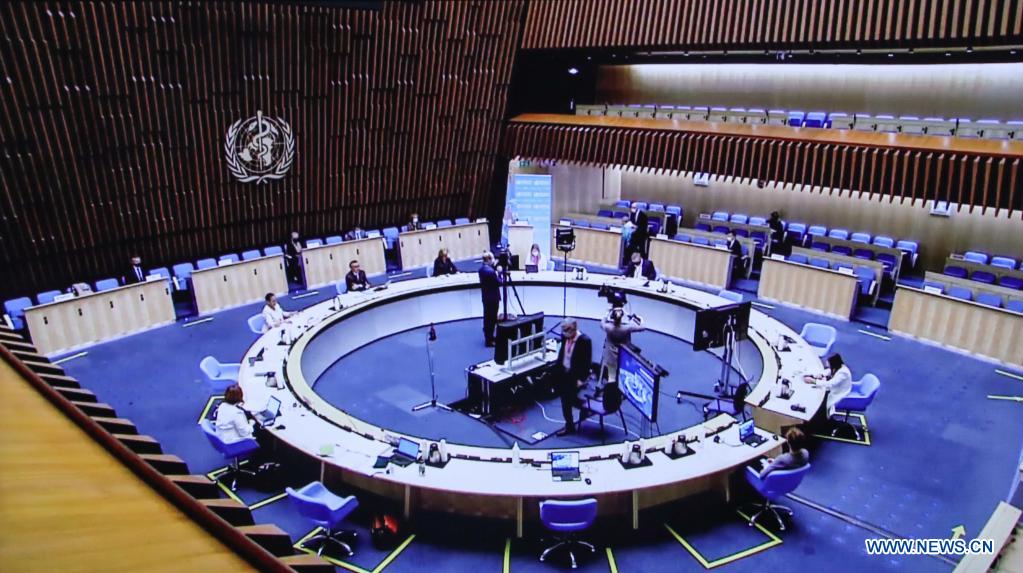

The 74th World Health Assembly (WHA) kicked off on Monday to stress the urgency of ending the current COVID-19 pandemic and preventing the next one by building a healthier, safer and fairer world.
More than a year into the ongoing COVID-19 pandemic, cases worldwide have risen 40-fold to more than 160 million, while the number of deaths has increased 11 times to over 3 million, according to World Health Organization (WHO) statistics.
As the pandemic continues to threaten people’s health and well-being, the nine-day virtual session of the WHA is expected to focus on the preparedness for and response to the pandemic so far.
In his speech at the WHA opening, WHO Director-General Tedros Adhanom Ghebreyesus called on members states to vaccinate at least ten percent of the population in every country by September, and at least 30 percent by the end of 2021, which means to vaccinate 250 million more people in low- and middle-income countries in just four months.
He urged countries to share vaccine doses now and fast to COVAX, the WHO-led international campaign for equitable distribution of COVID-19 vaccines around the world.
The WHO chief also underlined that implementation of the International Health Regulations has been inconsistent and has not led to the level of commitment and action needed during the pandemic.
“One of the greatest drivers of the pandemic has been the lack of international solidarity and sharing … we can only address that fundamental weakness with a binding commitment between nations to provide a solid foundation for enhanced cooperation — a treaty on pandemic preparedness and response that can address the challenges outlined,” he said.
Prior to the WHA, several reports of review and recommendation by respective WHO committees and panels have been publicized, including the main report by the Independent Panel for Pandemic Preparedness and Response.
The panel, established by the WHO director-general, concluded in its report that COVID-19 was a preventable disaster and that there were weak links at every point in the chain of preparedness and response. It urged for a new international system for pandemic preparedness and response to stop future infectious disease outbreaks from becoming catastrophic pandemics.
In another report, the Review Committee on the Functioning of the International Health Regulations 2005 (IHR) during the COVID-19 Response held that WHO member states have lacked compliance with certain obligations under the IHR, particularly on preparedness, which contributed to the COVID-19 pandemic becoming a protracted global health emergency.
Meanwhile, the Independent Oversight and Advisory Committee for the WHO Health Emergencies Program recommended in its report the WHO scale up its efforts to bring the ongoing pandemic under control, in which the “whole world” approach based on multilateralism must be adopted.
Such reports, concerning which resolution is expected, are presented at the assembly, while a standing working group could be set up to tackle specific recommendations from the reports.
Other highlights of the WHA agenda include the WHO’s work in health emergencies, such as the COVID-19 response; a global strategy and plan of action on public health, innovation and intellectual property as the WHO and some member states have been calling for waiver of intellectual property rights for COVID-19 response tools, particularly vaccines; and WHO transformation, which should aim at strengthening the independence, authority and financing of the organization.
As the highest decision-making body of the WHO, the WHA, held from Monday to June 1, is attended by delegations from all around the world and also open to associate members, observers, invited representatives of the UN and other participating inter-governmental organizations, and non-State actors.